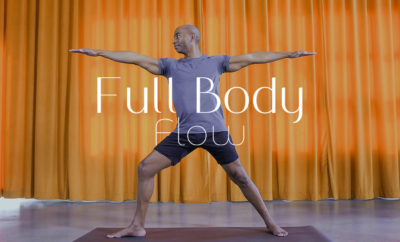What Is Biohacking? 5 Ways This New Wellness Trend Could Improve Your Health

“Biohacking” is a trending term that refers to the practice of using science and technology to optimize and enhance human performance, often through self-experimentation.
Biohacking covers a broad spectrum, and hacks can range from simple changes to your diet, including fasting, to advanced technologies such as gene editing and implantable devices. Yoga can even fall under the umbrella of biohacking.
This movement has grown in popularity since the 1990s as more and more people biohack to improve their health and well-being through personalized approaches that go beyond traditional medicine. The term was even added to the Merriam-Webster dictionary in 2018.
“Biohacking” refers to the practice of using science and technology to optimize and enhance human performance.
One of the most common examples of biohacking is the use of wearable electronics to track various health metrics. Devices such as Fitbit or Apple Watch can track your steps taken, heart rate and sleep quality, giving you quantifiable data to improve your health.
Another popular example of biohacking is the use of supplements and nootropics to enhance cognitive performance and brain function.
Nootropics are substances believed to improve cognitive function, such as memory, focus and creativity. Nootropics include caffeine, omega-3 fatty acids and Ginkgo Biloba. Bulletproof Coffee is one of the most popular consumable biohacks.
Fascinating stuff, right? Read on for the backstory and origins of biohacking, examples and five key ways it can improve your health. We even included our favorite biohacking influencers to follow. Let’s dive in!
The Origins of Biohacking
While the term biohacking is relatively new, the practice of modifying one’s biology to improve health has been around for centuries. Early examples of biohacking can be traced back to ancient China, where people used herbal remedies and acupuncture to heal themselves.
The term “biohacking” has its roots in the DIY biology movement that emerged in the late 1990s. This movement was driven by a group of scientists, engineers and enthusiasts who wanted to democratize science and make it accessible to everyone. They believed science should not be restricted to the confines of academia or industry and anyone should be able to experiment with biological systems.
Some biohackers came to the movement through necessity, because they had health issues traditional medicine couldn’t solve, and turned to the biohacking community for support.
Dave Asprey is often credited with popularizing the term “biohacking” and remains a prominent figure in the community. Asprey, a Silicon Valley entrepreneur, became interested in using technology and self-experimentation to optimize his own performance and health.
He created the concept of “Bulletproof coffee,” a drink made with coffee, grass-fed butter and medium chain triglyceride (MCT) oil, claiming it improved mental clarity and energy levels. Asprey’s approach gained popularity, and soon a community of like-minded individuals began to form around the idea of using science and technology to optimize human performance.
Want another alternative to your cup of joe? You Won’t Believe the Secret Ingredient in This Brain-Boosting Coffee Alternative Recipe
4 Common Examples of Biohacking:
Biohacking can take many forms, from simple dietary interventions, to more advanced techniques, such as genetic engineering and the implantation of electronic devices.
1. Nutrigenomics
Nutrigenomics is the study of how the nutrients we consume interact with our genes. Biohackers who practice nutrigenomics use genetic testing to determine which nutrients their body needs more of and then modify their diet accordingly.
2. Use of Electronic Devices and Apps
Some biohackers use electronic devices to monitor their health or enhance their performance, including devices that track their heart rate, sleep patterns and other biometric data.
Circadian health is among the top health and wellness trends. For more, check out The Top 10 Health & Wellness Trends to Follow In 2023
In some cases, like the continuous glucose monitor (CGM), these devices are implanted in their bodies. The CGM, originally developed to help manage diabetes, is used by biohackers who want to improve their blood sugar levels and is a growing trend, albiet controversial, in the biohacking community.
Think you might be prediabetic? Read: Prediabetes: Symptoms, Causes and Nutrition Recommendations From a Dietitian
3. Fasting
Fasting is a common biohacking technique that involves abstaining from food for a certain period. Biohackers use fasting to improve their metabolism, reduce inflammation and increase energy.
4. Nootropics
Nootropics, or smart drugs, are cognitive-enhancing supplements that are used to improve focus, memory and mental clarity. They can be natural, semi-synthetic or synthetic. Biohackers use nootropics to enhance their cognitive performance, and examples of nootropics include caffeine, creatine and blends like Noocube.
5 Ways Biohacking Can Improve Your Health:
Biohacking can improve your health by allowing you to take a more personalized approach to your health and wellness. Traditional medicine often takes a one-size-fits-all approach, which may not work for everyone.
Biohacking allows you to experiment with different techniques and interventions to find what works best for your individual needs.
Here are five important ways biohacking can improve your health.
1. Improved Physical Performance
Biohacking can help you improve your physical performance by optimizing your diet, exercise routine and sleep patterns. By making small adjustments to these areas, you can enhance your athletic performance, reduce the risk of injury and improve your overall health.
2. Improved Physical Health
By experimenting with different diets, fasting protocols and tracking statistics like steps taken, calories burned and sleep patterns, individuals may be able to improve their metabolism and overall health. Biohacking techniques such as fasting, dietary interventions and exercise can help reduce inflammation and improve overall health.
3. Increased Energy
Biohacking can help you increase your energy levels by optimizing your diet, exercise routine and sleep patterns. By making small adjustments to these areas, you can improve your energy levels and reduce fatigue.
Feeling Tired? Practice These 11 Energy Boosting Yoga Poses
4. Improved Cognitive Performance and Mental Health
Biohacking can help you improve your cognitive performance by using techniques such as nootropics and cognitive training. By enhancing your mental clarity, focus and memory, you can improve your productivity, creativity and overall quality of life.
5. Prevention of Disease
Biohacking techniques such as dietary interventions, exercise and genetic testing can help us identify diseases for which we may be at risk.
Biohacker Influencers to Follow
- Dr. Mark Hyman, with his Functional Medicine approach, promotes many biohacks for longevity and general health
- Jessie Inchauspé, a.k.a The Glucose Goddess, offers a wealth of biohacks to manage your blood sugar levels
- Stanford neuroscience professor, Andrew Huberman, shares excellent tips and advice from morning routines to ice baths
- Dave Asprey, sometimes referred to as the creator of the term biohacking, shares his tips based on his many years of experimentation
- Cynthia Thurlow offers expertise in intermittent fasting
In Summary
Biohacking is here to stay, and if you harness this industry correctly, you can radically improve your health and wellness. It’s a brave new world we’ve entered, and the technology we have access to today promises the opportunity for radical transformation, both inside and out.
Did any of these ideas resonate with you? Or better yet, what are your favorite biohacking methodologies? Please share with us in the comments below – we love hearing from you!
All included information is not intended to treat or diagnose. The views expressed are those of the author and should be attributed solely to the author. For medical questions, please consult your healthcare provider.


This Month's Letter
From the Editor
Monthly motivation and food for
thought from our founder.





























